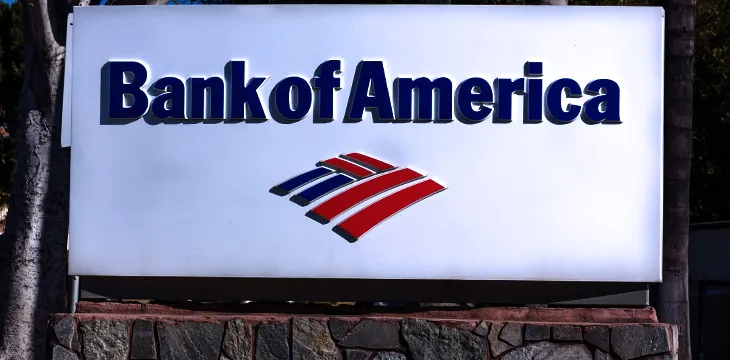|
Getting your Trinity Audio player ready...
|
Bank of America has always been opposed to cryptocurrencies while showing support for blockchains – even if the financial giant’s own tech chief hasn’t even been confident on the latter. The bank has filed a number of patents for blockchain-related solutions over the past couple of years and, despite its aversion to crypto, has now filed a patent related to digital currency wallets.
According to the US Patent and Trademark Office (USPTO), Bank of America’s patent request covers “multi-tiered digital wallet security.” The filing asserts, “Through the digital wallet interface, a user of the user computing device may be able to partition digital currency holdings into one or more differentiated storage compartments or tiers. Each of the one or more compartments may be password secured and may only permit access to the amount of digital currency holdings specified by the user.”
In other words, the solution would cover multiple layers of asset access and the potential use of multiple passwords that would be assigned based on the amount of crypto to be transacted. To help provide a better understanding of how the system works, the patent filing explains, “As an illustrative example, the user may have logically abstracted 4 BTC [Bitcoin Core] and 20 ETH [Ether] in the first tier of the digital wallet interface. The user may specify a first network function request for the Bitcoin decentralized P2P network involving 3 BTC and an address within the Bitcoin network, and a second network function request for the Ethereum decentralized P2P network involving 10 ETH and an address within the Ethereum network.”
The wallet solution is designed out of necessity, according to Bank of America. Current wallet security is weak, at best, and private key management is insecure. Private keys that are controlled by users are prone to theft and those that are held by third parties offer a weak link that can be compromised and which remove a certain layer of user control. Bank of America’s wallet, if it were to be created, would provide better security and more consumer protection than offered with current wallet solutions, asserts the company.
The same weak security could be asserted regarding online banking. User login data is not completely controlled by the user, since passwords are stored on the bank’s servers, and there have already been plenty of examples of two-factor authentication solutions being inadequate. Given the lack of ample security surrounding online banking access, perhaps banks could use their resources to offer their customers better protection.

 07-09-2025
07-09-2025 





